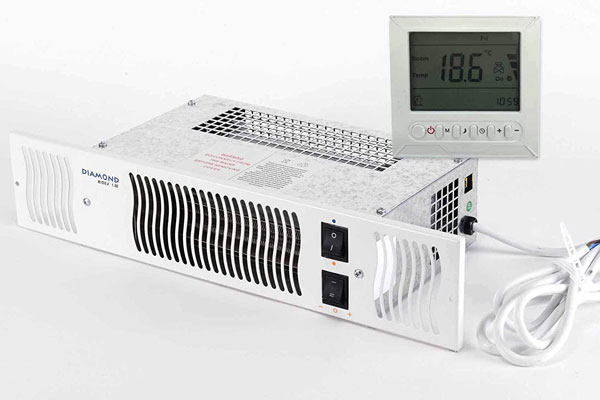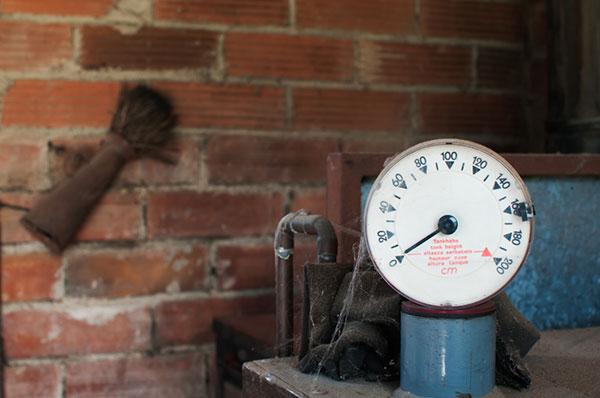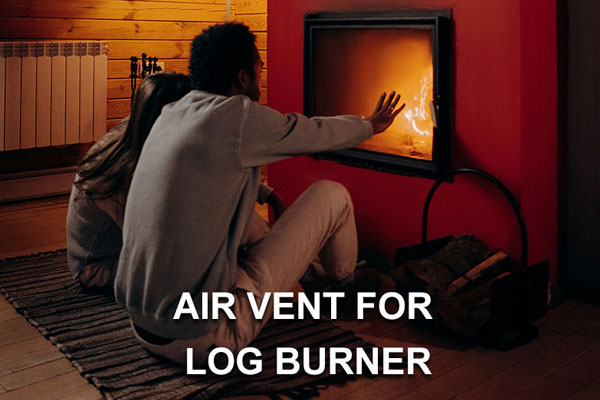The UK is undergoing the sharpest energy price hikes in history, and householders are understandably worried about affording to pay their escalating energy bills. But is it really possible to make your home warmer and more energy efficient without turning up the central heating thermostat?
In this guide, we look at the best ways to keep your house warm and maximise heat retention in your home without the need to bump up the heating.
Warm yourself rather than your home
Once the nights start to get chilly, it is tempting to turn the heating up. But how warm should your home be? What is an ideal temperature to maintain in your home without bumping up your heating bill?
Experts recommend keeping our homes around 21°C, so anything between 18-22°C is an excellent range to aim for. But what if you like it cool, but your partner prefers to be warmer? The answer here is not to quarrel over the thermostat setting but instead do what our grandparents did when they got cold – put on a woolly jumper or cardigan.
These days, people have become used to walking around their homes wearing t-shirts and light clothing all year round. Before central heating became the norm in most homes, when the weather turned chilly, people would wear warmer clothes indoors, effectively warming themselves up instead of adding more coal or wood to the fire to heat their homes.
By keeping your home comfortably warm at around 21°C and putting on a jumper or cardigan if you feel chilly, you won’t be tempted to turn up your heating and skyrocket your bills.
Free tips for saving on your heating
You can keep your rooms warmer and resist the temptation to turn up your thermostat with a few clever tweaks to your home. Here are a few things you can try to help retain the heat in your rooms and keep your heating costs down without spending any money:
- Furniture position: Where you position your furniture in your rooms can help to save money on your energy bills. Try not to place sofas or armchairs in front of your wall radiators. Blocking the heat from your radiators with heavy furniture will prevent it from circulating around your room.
- Bleed radiators: Your central heating radiators will develop cold spots over time. This is because air pockets can develop that prevent the radiator from heating up. You can get rid of air pockets by bleeding your radiators, improving warm water circulation and making your heating more efficient.
- Stop draughts: The most common cause of heat loss in homes is through draughty doors and windows. If you have an older property with ill-fitting single-glazed windows and doors, you can help to reduce heat loss by looking for gaps around windows and door frames that can be blocked with draught excluders. You can make a free draught excluder to cover the gap at the bottom of a door by stuffing one leg of an old pair of tights with fabric and tying off the open end.
- Heating controller: It can be common to turn on the heating as soon as temperatures drop in the autumn. Think through your habits and assess whether or not you really need to switch the heating on just yet or if you can hang on for a couple of weeks while the weather is still mild enough for you to get by. You can set the heating to a lower temperature and then turn it down by one degree. Doing this will prevent your heating from kicking in before it gets cold and save you up to ten per cent on your energy bills. Most modern central heating boilers come with timers you can set to come on and switch off at set times. Set the timer to switch off your heating during the night when everyone should be tucked up in bed and asleep.
- Lower the temperature in the house: Keeping your home warm is good for your health and the condition of your home. But you don’t need to keep your whole house heated to a toasty temperature. You will save a lot of money on your energy bills by turning down your heating by a couple of degrees, so your house remains warm but not unnecessarily hot.
- Choose the rooms to heat: Most centrally-heated homes will have radiators in every room of the house. But this doesn’t mean you must keep every room in your house heated. If you have spare bedrooms that family members do not use, you can turn off the radiators to save money. If you don’t use your dining room and prefer to eat in the kitchen or living room, it doesn’t make sense to heat an empty room. By only heating the rooms you use, you can lower your energy consumption and stay in control of your bills.
Low-cost ways to save money on your energy bill
While there are many things you can do to save money on your energy bills that are free, as mentioned above, if you can afford to invest a little money into improving your home’s energy efficiency to control your energy bills, these low-cost tips are really worth the investment.
Cheap ideas for heating saving:
- A shelf above radiators: If you install a shelf above a wall radiator, it can help to push the heat generated more evenly. Adding a shelf over a radiator will help shift heat outwards into the room rather than skirting the wall and rising to the ceiling.
- Tinfoil behind radiator: The Energy Saving Trust recommend radiator reflector panels for external wall-mounted radiators. They work by carefully positioning tin foil behind the surface of each heater, creating an effective air flow that pushes heat back into your room rather than letting it escape through exterior walls!
- Block the chimney: If you have an older property with a fireplace that you don’t use, heat from your rooms can escape up the chimney. Chimneys can be draughty and not only allow heat to escape, but on windy days they can deliver unwanted chilly draughts directly into your living room. Blocking off your chimney is a low-cost way to prevent draughts and keep the heat in your living room.
- Insulate water cylinder: If you have a conventional or system boiler that uses a hot water cylinder, you can save energy by insulating your hot water cylinder. Hot water cylinders heat and store hot water for your heating and hot water needs. But a lot of heat can be lost from the cylinder to the air if you don’t insulate it with a hot water cylinder jacket. These jackets are low-cost and easy to fit. The jacket will insulate the cylinder and retain more heat, so you don’t need to waste more energy reheating your cooling hot water.
- Clean the radiator system: Having your radiators professionally flushed by a local plumber is quick and cost-effective, and it can make a great deal of difference to the efficiency and effectiveness of your heating. Having clean radiators also puts less stress on your central heating boiler, which will help it last longer.
- Use curtains: A lot of heat is lost through windows in the home, so an inexpensive way to reduce heat loss is to hang thermal curtains. Hanging curtains can help retain heat within the room and slows the flow of warm air in your home to the cold air outside. Hanging heavy or thermal curtains over draughty doorways can also be a heat barrier, trapping more warm air indoors.
More expensive ideas to save on energy bills
Suppose you can afford to spend a bit more money on upgrading your home to make it more energy-efficient, cosy and warm. In that case, these tips will not only help to reduce your energy consumption, but they are a significant one-time investment to make in your home that will last for many years.
- House Insulation: You can look at adding cavity wall insulation, floor and loft insulation to really hold onto the heat in your home and prevent it from escaping. Even though you will have to pay up-front costs for your home insulation, they can be very cost-effective in the long run, with the savings you can make on your energy bills for years to come.
- Upgrade the controller/thermostat: If you have an old thermostat controlling your heating system, then there can be a 3-5°C delay in your boiler switching on again. Your thermostat communicates with your boiler, and when your home reaches the temperature you set on your thermostat, your boiler will switch off until the temperature drops below that setting. Older thermostats are inefficient because it will take longer for your boiler to reach your set temperature, meaning you will use more energy. A new thermostat will be more efficient and prevent energy wastage.
- Efficient boiler: Ensuring your boiler works as efficiently as possible is one of the best ways to reduce your energy consumption. Having a qualified heating engineer test and service your boiler each year before winter will help it perform better during the year’s colder months when it needs to work its hardest. If your boiler is over ten years old, it will be less efficient than newer models, but keeping it well maintained will enable you to get the best performance before replacing it.
- Add carpets and rugs: Although it has been the trend to have hard floors in homes for the past couple of decades, you can retain more heat in your home if you lay wool carpets or add thick area rugs. Carpets and large rugs help to prevent heat from being lost through the floor, and they are softer and warmer on your feet, so if you want to save money by turning down your thermostat and keeping your house cooler, by laying carpets and rugs, you don’t need to have cold feet all winter!
- Consider installing a low-carbon heating system: There is a big push from the government for homeowners to switch to low-carbon heating systems to help us towards a net-zero future. Low-carbon heating systems include ground source heat pumps and Air source heat pumps, and there will come a time when gas boilers are phased out, and these low-carbon systems will be that standard option. There are grants, such as the Green Homes Grant, to help householders replace their old boilers with modern low-carbon systems. Still, there are no guarantees these grants will be available in the future when new gas boilers become obsolete.
Conclusion
While everyone will be tightening their purse strings as the cost of living increases, making sensible free or low-cost changes in your home can help keep your home warmer during winter and reduce the energy you use.
If you have money available to invest in low-carbon heating options or more expensive insulation solutions, it will pay off in the long term with savings on your heating bills.







